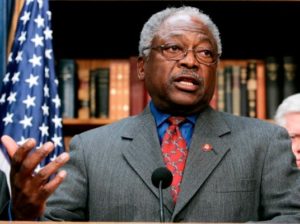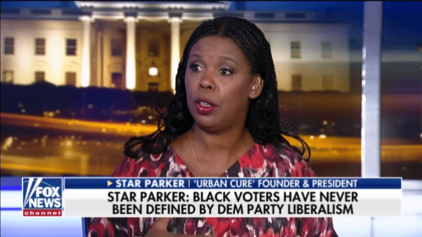
U.S. Rep. Jim Clyburn (D-South Carolina)
On Monday, the U.S. House of Representatives approved legislation that would re-authorize funding for the preservation and restoration of historically significant sites on HBCU campuses nationwide.
According to the Charleston Post and Courier, U.S. Rep. Jim Clyburn secured the passage of his bill, which will provide $10 million dollars a year, over the next seven years, for the HBCU Historic Preservation Program. The preservation initiative was started in the late 1990s after a study by the Government Accountability Office found that 712 historic HBCU sites and buildings were in need of costly repairs — $755 million to be exact.
The program lapsed in 2009, and no additional funds were authorized. That’s when Rep. Clyburn stepped in to help.
“Although it will not provide all of the funding the GAO estimated is needed to preserve every threatened site, (the bill) will continue the progress Congress has made in preserving these unique treasures,” the congressman said.
The Charleston Post and Courier reports that, over the years, the preservation program has helped 59 HBCUs in 20 states across the country. The bill will now make its way to the Senate for approval.
Unfortunately, Clyburn’s bill only solves one or two of the problems plaguing historically Black colleges. Over the years, these institutions have suffered steady drops in enrollment, as well as government funding.
Dwindling registration coupled with the threat of increased budget cuts have forced some HBCUs to start seeking non-Black students, Atlanta Black Star reports. For instance, Delaware State University president Dr. Harry L. Williams drastically cut spending by eliminating a quarter of the institution’s academic programs and recruiting exchange students from China.
“It’s a revenue generator for us and a way of marketing the university,” Williams said of the university’s international recruiting. “We’re definitely committed to our heritage and our history. But we had to make sure that we were relevant and have programs that would attract students.”
However, the growing issue of racism on predominantly white college campuses has offered some HBCUs a glimmer of hope in the form of increased enrollment. In the wake of heated, race-related protests on the campuses of the University of Missouri, Ithaca College and Yale, among others, HBCUs like South Carolina State, Tuskegee University and Delaware State University have seen spikes in student enrollment.
A Washington Post article written by Dillard University president Walter A. Kimbrough reports that South Carolina State University’s freshman enrollment is up 39 percent; Tuskegee saw an increase of 32 percent; and Delaware State’s increased 19 percent. Dillard University is up 22 percent, according to Kimbrough.
“It appears prospective students…[have], at least for a higher number this year, found that historically Black colleges are the best fit,” he wrote. “For Black students, HBCUs continue to serve as the original safe spaces.”

